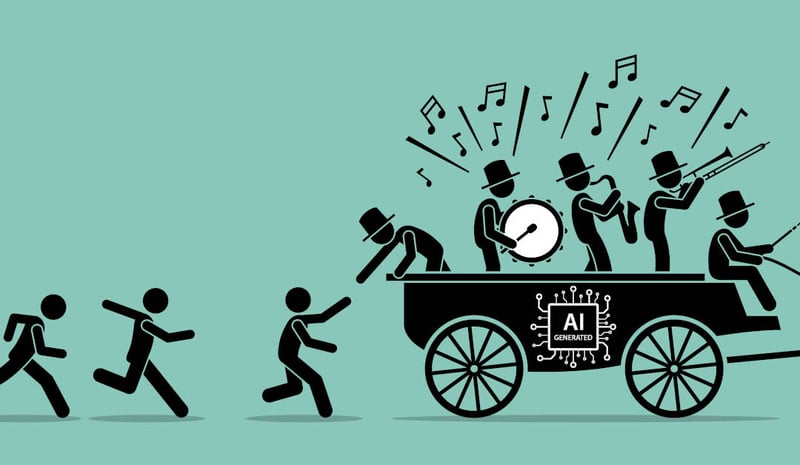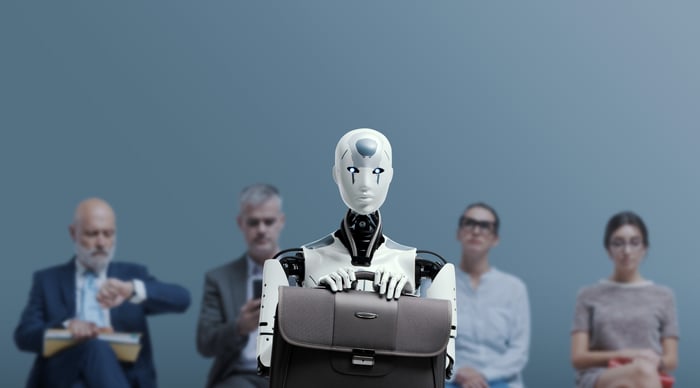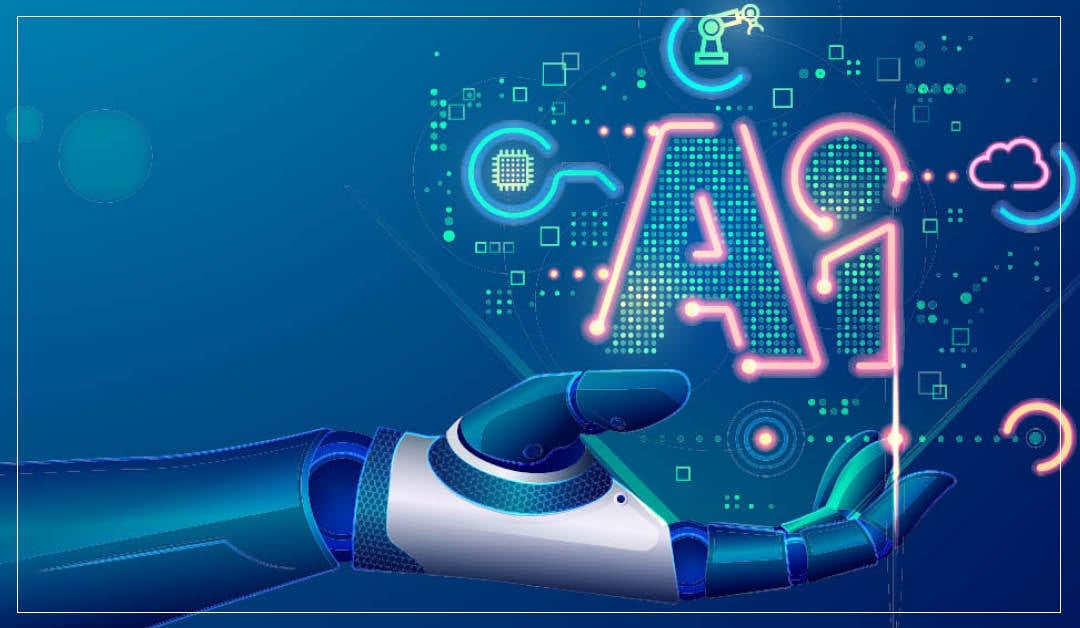Weighing the Possibilities and Limitations
Suddenly, it seems like everyone is jumping on the AI (Artificial Intelligence) bandwagon, and the events industry is hardly immune. Headlines, giddy predictions about AI events, rounds of capital funding—all suggesting that AI is set to transform the industry overnight.
While AI will undoubtedly change certain aspects of event planning, the success of any event requires human creativity and relationships. And that, despite all the technology in the world, will not change.
The success of any event requires human creativity and relationships. And that, despite all the technology in the world, is not going to change.
In today’s blog, we’ll outline the possibilities and limitations of AI in event production— where AI can help, and where people are still needed.

POSSIBILITIES: Areas Where AI Can Improve Event Production
- Automation: AI is primed to help automate manual tasks so you can more easily manage venue availability, speaker conflicts, attendee schedules, personnel, and logistics. Instead of spending valuable hours filling in calendar programs with times and dates, an AI scheduling tool can make it all fit together smoothly as well as send timely alerts and reminders.
- Content Generation: One of AI’s strengths is its ability to analyze massive amounts of data from the news, social media, or databases from previous events, allowing it to pinpoint market and industry trends and generate relevant, engaging marketing or event content including quizzes, games, and a “second-screen experience.” Combined with AR/VR technology, AI event content can be both interactive and immersive. AI can also determine which channels are most appropriate for disseminating it.
One of AI’s strengths is its ability to analyze massive amounts of data from the news, social media, or databases from previous events, allowing it to pinpoint market and industry trends.
Analysis of Customer/Competitor Behavior: AI can also provide insights into the behavior of customers and competitors. Through the use of predictive analytics, it can anticipate developments and patterns before they occur, allowing your business to make strategic and informed decisions—for example, choosing which events to attend or invest in.
Personalized Attendee Experiences: AI can leverage data to enhance the event experience for attendees via AI-powered chatbots that provide guidance and answer questions. It can also create personalized event schedules based on the priorities and preferences of individual attendees—and can even recommend exhibitors, sponsors, social events, restaurants, and leisure activities. All of these features drive interest, engagement, and positive word-of-mouth.

LIMITATIONS: Event Production Areas Where AI "Can't" Help
- Coaching Your Keynote Speaker: Human creativity and relationships are most needed in the crucial area of coaching keynote speakers, a process that includes makeup, clothing, practice, a well-conceived presentation and slideshow, and a close relationship with the tech team to ensure all cues are hit and the speaker shines.
- Scouting Venues: So much needs to be done during site visits, judging room capacity, determining wayfaring and signage opportunities, conducting measurements inside and out, and negotiating everything from power and internet needs to relationships with staff, freelancers, venue management, and unions. And yes, it all requires a human touch.
In the events industry, so much of running a good event requires intangibles such as "experience" - a history of interactions with clients, speakers, vendors, and labor relations - as well as the human aspects of production, project management, and contingency planning.
- Creating a Production Plan: All the moving parts that go into making a successful event must be considered in the production plan. This includes detailed pre- and post-production plans, together with a detailed rundown of the event and all of its particulars: speaker, staging, lighting, sound, catering, performers, vendors, and recording or live streaming.
- Handling Project Management: Project management—where the production plan is put into action—is not for the faint of heart. It requires tracking deadlines, keeping projects moving, handling project management software, and maintaining constant communication between the client and vendor. A dedicated project manager provides a single point of contact for the project, allowing everyone from the producers to the creative directors to focus on their missions.
- Designing an Event Brand: Separate from a corporate brand, an event brand helps attendees understand what they will get from the event before they set foot in the venue. This requires the work of an art director and team, who create a logo, theme, and “hero image”—the attention-grabbing image used as the backdrop for a logo or website—that appears throughout the attendee journey. Once the logo is designed, it’s a question of making it visible: at registration, on badges, wayfinding, scenic, staging, and breakouts.
- Running the Tech: As the saying goes, when things go right, you don’t notice them; when they go wrong, everyone does. Same with the technical aspects of an event. A week or so before, the tech crew creates a run-of-show document, which contains everything necessary to stage a cue-to-cue rehearsal. This includes actions to take when the speaker walks on stage (music, narration, introduction), camera work, and preparing and cueing any video clips to be used during the presentation.
- Executing Contingency Plans: Despite the best-laid plans, there are bound to be changes that require ingenuity and resourcefulness. Schedules may change, speakers may cancel, or—as occurred during the pandemic—events may be moved online en masse, requiring a sudden shift to livestreaming and live-captioning. For all its data-crunching ability, AI can’t navigate contingencies like these.

AI Is a Powerful Tool for Event Planning, but Humans Are Essential!
AI is a groundbreaking tool that can be deployed to reduce mundane tasks, analyze data, and enhance business strategy. But in the events industry, so much of running a good event requires intangibles such as “experience”—a history of interactions with clients, speakers, vendors, and labor relations—as well as the human aspects of production, project management, and contingency planning.
As powerful as it is, when it comes to event planning, AI simply cannot replace human expertise and the human touch. And when it comes to expertise, it’s hard to beat Stagedge’s 40+ years of experience. To find out more about how we can help you with full-spectrum event production, visit our website.
--
Stagedge: Creating Immersive Experiences for 50 years is proud to be one of Boston's leading full-service event production companies, dedicated to conceiving, creating, and executing immersive brand experiences through live, virtual & hybrid events domestically, and around the world.
